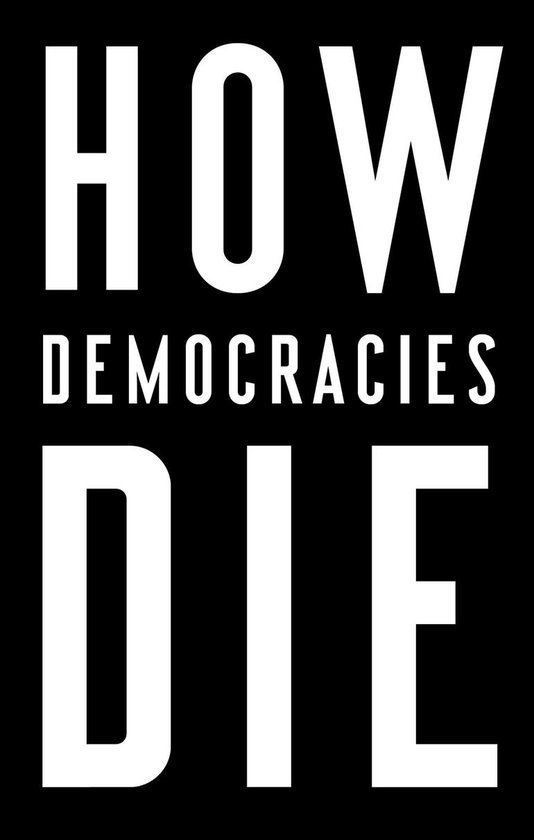Democracy is an illusion: unmasking western bias and linguistic imperialism
Democracy is often hailed as the ultimate form of governance, upholding the ideals of political freedom, representation and equality. However, on closer inspection, it becomes explicit that democracy can fail to deliver on its political promises and is instead a political regime that serves the interests of the privileged few while exploiting and manipulating the population at large.
The excessive use of the terms "immigrants" and "expatriates" has always fascinated me, as the arbitrary distinction between the two seems to be based on subjective factors rather than objective criteria. When people from so-called "Third World" countries settle in the West, they are often referred to as "immigrants", while those from more developed countries are considered "expatriates."
In the same way, we speak of democracy for Western countries and dictatorship for so-called "Third World" nations.
This divergence in terminology raises questions about how our perceptions and prejudices influence the way we categorize and incorrectly label people and countries.
The use of the term "democracy" when referring to Western countries and "dictatorship" when referring to Third World countries is an example of linguistic imperialism. This linguistic imperialism perpetuates the idea that democracy remains the superior form of governance, while relegating other systems to an inferior status. In reality, democracy in its current form fails to represent and serve the interests of the majority.
BY ENCOURAGING SUPERFICIAL PARTICIPATION SUCH AS "VOTING" AND CITIZEN INVOLVEMENT IN THE POLITICAL PROCESS, DEMOCRACY PERPETUATES A FACADE AND GIVES THE ILLUSION THAT WE ARE SOMEHOW MASTERS OF OUR DESTINY, WHEN IN REALITY WE ARE BEING LED LIKE SHEEP TOWARDS THE obsessive INTERESTS OF A WEALTHY ELITE.
Some Western countries can be described as "democratic" even though they have a history of colonialism, imperialism and human rights violations. On the other hand, some non-Western countries can be erroneously described as "dictatorships" even though they have democratic institutions and practices.
For example, under Gaddafi, education and medical care were free in Libya; newlyweds received $50,000 from the government and housing was considered a human right.
In the USA, the Roe v/s Wade case is a perfect example of how democratic processes can be subverted by a ruling elite, with the Supreme Court — the country's highest judicial institution — making a decision that ultimately deprives WOMEN of their reproductive rights.
In France, the government is using the 49.3 provision to bypass parliamentary debate on the retirement age and pass a bill directly into law. It's a source of controversy, an abuse of power and a way for the government to bypass democratic processes.
To take the case of France again, in order to establish a truly democratic society, it is essential to address and rectify historical injustices and combat systemic oppression. One aspect of this is the unequivocal rejection of land ownership or the maintenance of colonies abroad that stem from exploitative and colonial practices against people of color.
France's ownership of overseas departments and territories, along with the exploitation of resources from 14 African countries, raises questions about its claim to being a true democracy.
Under a colonial pact, these 14 African nations are obligated to keep 85% of their foreign exchange reserves with the French central bank, under the control of the French finance minister. Even in 2014, countries like Togo and others are still burdened with paying colonial debts to France.
African leaders who resist are faced with threats, violence, or coups, while those who comply are rewarded with a lavish lifestyle, leaving their citizens to endure extreme poverty and despair.
The dark legacy of France's colonialism has inflicted lasting wounds on several African countries, subjecting them to a colonial tax that perpetuates the painful remnants of slavery and colonization. This unjust system ensnares these nations, forcing them to bear financial obligations to their former colonizer. The very countries that endured exploitation and resource depletion continue to be entangled in an unfair economic relationship.
As France benefits from its past misdeeds, the affected nations struggle to break free from a system that hampers their development and perpetuates poverty and dependency.
Acknowledging and rectifying these longstanding injustices is essential to empower these countries towards true liberation and autonomy.
Furthermore, the practice of owning land belonging to people of color or maintaining colonies abroad is rooted in imperialist practices, resulting in the subjugation, dehumanization, and exploitation of indigenous peoples and communities of color. These actions carry implicit connotations of racial superiority, exploitation, and disregard for human rights.
Democracy demands that we recognize the dignity and humanity of all individuals, regardless of race or ethnicity. It requires us to acknowledge the past, learn from it, and take steps to rectify historical injustices. Owning land belonging to people of color or maintaining colonies abroad contradicts these democratic principles, perpetuating inequality and hindering progress.
It is essential to promote genuine equality, inclusivity, and respect for human rights in order to uphold the values of democracy.
Although we are often taught that revolutions were fought for democracy, the reality is that democracy IS used as a tool of oppression rather than liberation.


